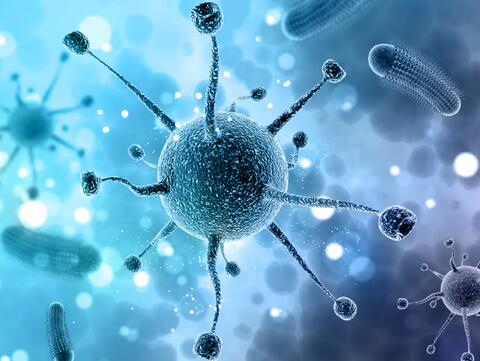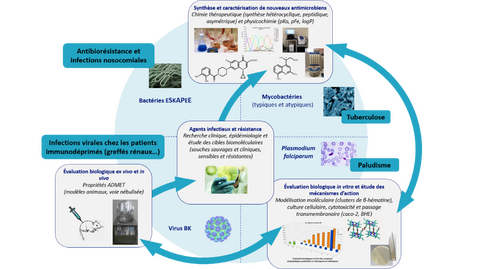AGIR
With the emergence of multiple bacterial resistances, antibiotherapy is going through a global crisis in the 21st century, with dramatic consequences for public health. In the European Union, antibioresistance is estimated to be responsible for 25,000 deaths per year, with an overall annual cost to society of €1.5 billion (source: ECDC 2007). The lack of knowledge and the emergence or re-emergence of certain viral infections are also acute public health problems.
As one of the major issues in anti-infectious treatments, the fight against resistance phenomena is at the heart of our laboratory’s objectives. AGIR designs and evaluates new anti-infectious molecules to better fight against malaria, tuberculosis, nosocomial infections and viral infections in immunocompromised patients. At the same time, the team is investigating the physiopathological mechanisms of these infections.
Professor Pascal SONNET, Director
Professor Sandrine CASTELAIN, Deputy Director


Team's research themes
AGIR focuses its research on the resistance developed by these 4 groups of pathogens :
• ESKAPEE bacteria, which are at the origin of numerous nosocomial infections causing more than 700,000 deaths per year throughout the world;
• Mycobacteria responsible for tuberculosis, the second most deadly infectious disease after HIV;
• Plasmodium falciparum, the parasite responsible for malaria (228 million cases and 405,000 deaths worldwide in 2018);
• The BK virus, which is responsible for 10 to 15% of rejection in patients with kidney or bone marrow transplants.
• The laboratory is also working on the SARS-CoV-2 virus which is at the origin of the COVID-19 epidemic

